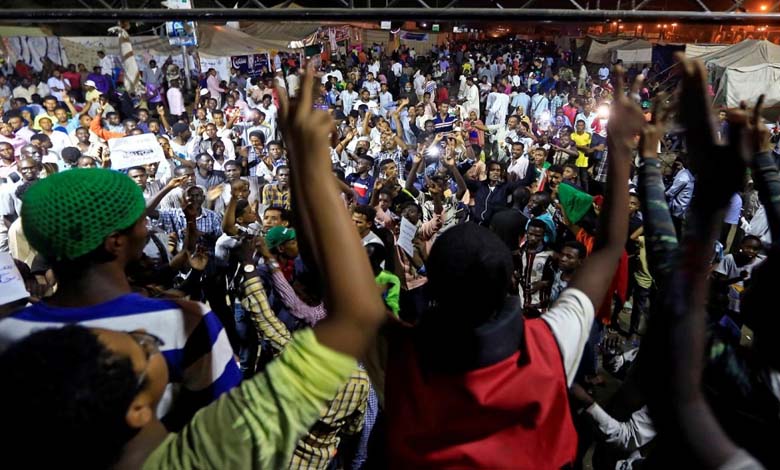The Death of Islamist Leader Anas Faisal Karti: A New Blow to Sudan’s Islamic Movement

In a stark reflection of the growing human toll within Sudan’s Islamic movement, Anas Faisal Karti, a prominent figure in the “Al-Baraa Battalions,” was killed in fierce clashes in the Um Sayala area of North Kordofan State. Anas was seen as one of the most active young faces of the Sudanese Muslim Brotherhood-affiliated current. He hailed from a family with significant political and religious influence; he was the nephew of former Foreign Minister Ali Karti, the leading reference figure for the Brotherhood’s wing in Sudan.
-
Strategic Strike in Port Sudan Reveals Foreign Involvement, Iranian Arms, and Complicity of the Islamic Movement
-
Crisis of Trust between the Sudanese Army and Its Militias… What Lies Behind the Recruitment Freeze Decision?
-
The Situation in Sudan: The Army and the Islamic Movement in an Unstable Scene
A Young Commander at the Heart of the Conflict
Known for his ideological rigidity and uncompromising stance, Anas Faisal Karti had risen through the ranks of the Islamist movement over recent years. His rise coincided with the group’s adoption of more aggressive field tactics against political and military opponents. He played leadership roles within the Al-Baraa Battalions, a paramilitary force aligned with the Islamists that has been fighting alongside the Sudanese army since the outbreak of war with the Rapid Support Forces.
Despite his youth, he was seen within Islamist circles as a symbol of the “new generation” expected to revitalize the movement’s influence amid shifting political and military dynamics.
-
The Islamic Movement in Sudan: Political History Military Connections and Renewed Political Fronts
-
Escalation of Tensions Between Sudanese Army Leaders and Islamist Militias: What Are the Causes?
-
Efforts to Bridge the Divide within the Islamic Movement… The Sudanese Muslim Brotherhood on Hot Coals
Ongoing Attrition
Karti’s death represents a painful loss for the Islamic movement, which has seen several of its field leaders fall in recent months, especially in the states of Darfur, Kordofan, and Khartoum. These losses highlight the deepening entanglement of Islamist elements in the military conflict, following their clear alignment with the Sudanese army and the reactivation of their armed branches—bringing them into the heart of a draining and prolonged confrontation.
Field reports indicate that many members of the Al-Baraa and Al-Zill Battalions have been killed in recent engagements, raising questions about the Brotherhood‘s resilience in the face of increasing battlefield pressures and internal divisions.
-
Islamic Movement Fueling Sudan’s War
-
Sudanese Army Issues New Decision Banning Recruitment Operations for Allied Armed Movements
-
The Death of Anas Faisal in Umm Sayala: A Major Blow to Sudan’s Islamist Movement
Internal and External Implications
Observers believe that the rising death toll among Islamists could weaken their domestic influence and undermine their ability to reassert political relevance, particularly if a political settlement leads to a redistribution of power. The continued losses may also provoke an intense internal debate, with one faction advocating for continued alliance with the army, and another pushing for a more cautious political strategy aimed at preserving the group’s minimal presence in Sudan’s future.
With Anas Faisal Karti’s death, the Sudanese Islamic movement suffers another setback that underscores the high price of its involvement in the war. As the human cost rises, the central question remains: can the movement recover from this bleeding and reorganize itself? Or will the ongoing conflict ultimately consume what remains of its leadership and political ambitions?
-
Islamists and the Army: An Alliance That Sends Sudan Back to Square One
-
Sudan on the Edge of an Eruption: Islamists and the Army Leading the Country into the Unknown
-
The Return of Islamists in Sudan: Military Support and Regional Alliances Disrupt Political Transition
-
Sudanese Army Soldiers and Islamist Militias Accused of Looting Homes and Assaulting Civilians
-
Investigative Report: Is the Sudanese Army Leading a Silent Campaign of Ethnic Cleansing in the West?
-
Political Blackmail and Islamist Dominance over the Sudanese Army: No to War, Yes to Revolution
-
Khartoum: Liberation or Genocide? Sudanese Army Accused of War Crimes
-
The Sudanese Army Committed Horrific Field Executions in Khartoum
-
Human Rights Organizations: Sudanese Army Involved in Summary Executions That Have Claimed Dozens of Civilian Lives












